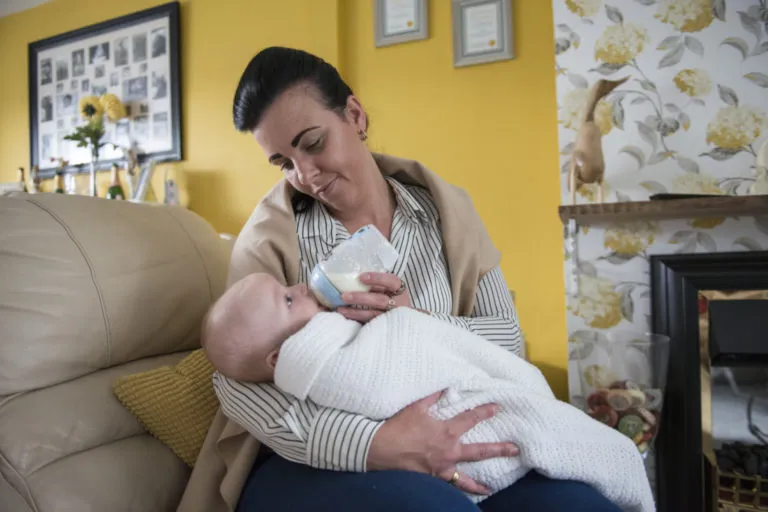Homeless with a sick child: the stark reality of our housing crisis
Published: by Heather Spurr

Rebecca is a mum to three children, including a baby with type 1 diabetes. To prevent her baby from becoming seriously ill, she needs to monitor his blood sugar levels throughout the day and night and provide him with a carefully controlled diet.
If this wasn’t difficult enough, Rebecca was facing homelessness when her landlord decided to evict her and her family.
A new report from the Local Government Ombudsman (LGO) describes how Rebecca was badly let down by her local services when she was in her greatest time of need.
There are many similar stories to Rebecca’s. Worryingly, the LGO says it upholds 70% of complaints it investigates in detail about homelessness services. Its new report, ‘Still No Place Like Home’, highlights stories of families left in unsuitable accommodation – and makes recommendations for improvements.
What went wrong
The LGO found the councils had plenty of opportunities to find Rebecca suitable accommodation before she became homeless. But instead it made her to wait until the bailiffs came to remove her before it would provide her with accommodation.
When Rebecca moved into the bed and breakfast, she told the council she could not manage her son’s diet because of the lack of kitchen facilities – she and her family were forced to live off takeaways. Rebecca’s son was hospitalised after contracting an infection. The hospital said this was because Rebecca was unable to control her baby’s diet, and also the accommodation’s unhygienic conditions.
Stuck in temporary accommodation
Although this example seems extreme, Rebecca’s situation is not a one-off. And the number of families at risk of this sort of situation is on the rise. The government revealed yesterday that 121,360 children are homeless in England; this is 3% higher than a year ago, and 61% higher than five years ago. The figures also show that the problem has spread far beyond London: the number of households in temporary accommodation in the rest of England has gone up by 15% in the last year.
There are no national statistics on temporary accommodation standards, but we know that every week, our frontline services challenge poor practice and unsuitable accommodation. The Royal Society for the encouragement of Arts, Manufactures and Commerce (RSA) says that temporary accommodation is often rejected by other parts of the lettings market so properties continue to be poor quality. We also know that despite a recent dip in the numbers, 1,110 families with children or pregnant women continue to be unlawfully housed in bed and breakfasts for more than six weeks.
What should be done
As the LGO notes, bed and breakfasts are never suitable for families and pregnant women, and alternative housing should be provided within at least six weeks. Councils must provide suitable accommodation, meaning it must be habitable – and they must respond to complaints about repairs.
Among other recommendations, the LGO says councils should be notifying families and pregnant women placed in bed and breakfast accommodation that the law says the accommodation is unsuitable and that they must be moved within six weeks. But at Shelter, we encounter many homeless families that don’t know their rights. Councils need to consistently inform families of their rights and how to complain, to prevent things getting to a crisis point.
There is no excuse for local authorities breaking the law. But the fact remains that the housing market – and the temporary accommodation market in particular – is at breaking point. As the Homeless Reduction Act comes into force, the government must urgently address the housing crisis if it wants to make a dent in homelessness numbers.
What can you do
We help more than five million people a year, giving expert advice and support through our free helpline, face-to-face, and online services. But we can’t do it without your help. Please, help a homeless family – make giving to Shelter your new Christmas tradition. You can donate via our website, or text SHELTER to 70080 to donate £3.